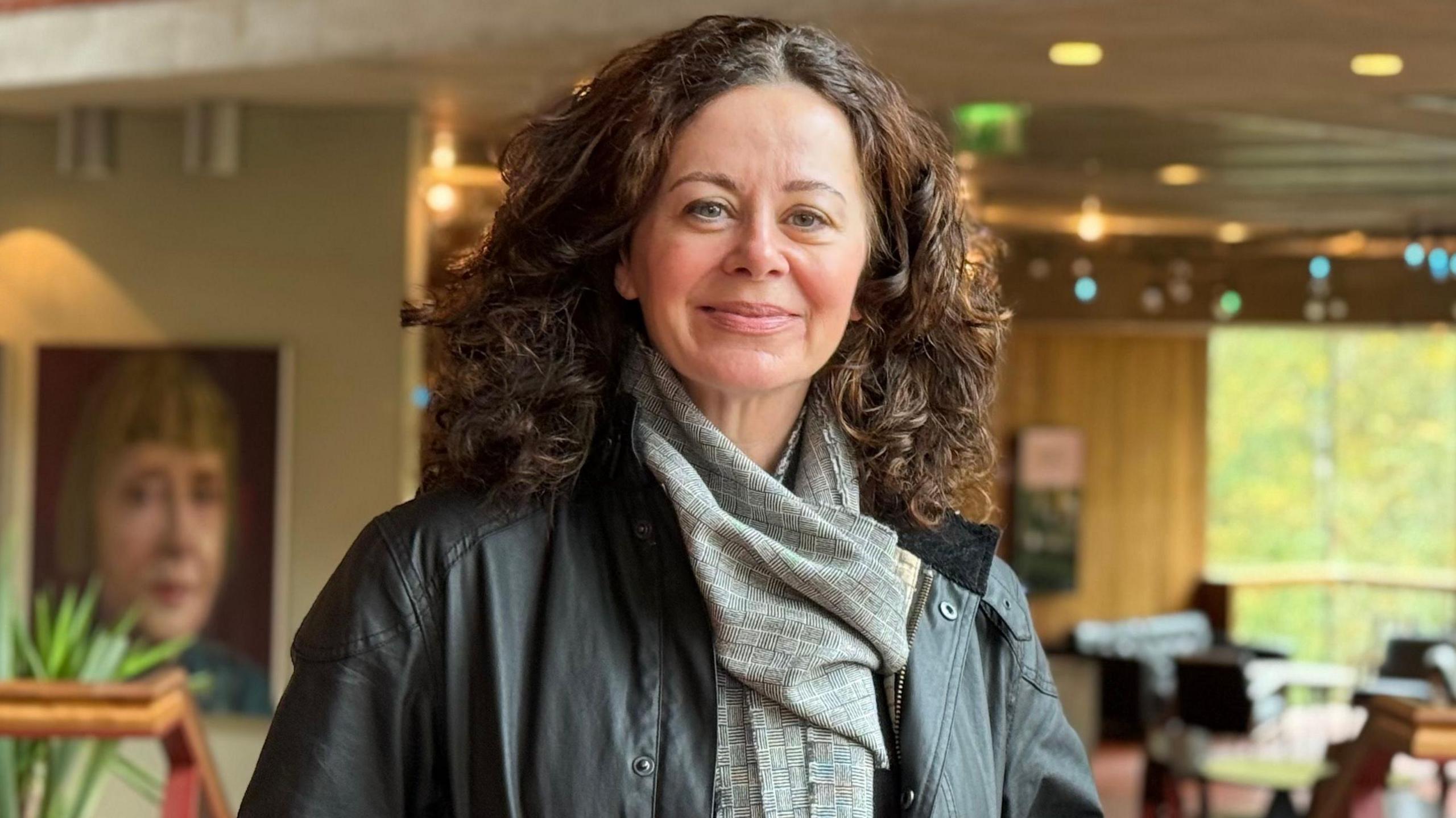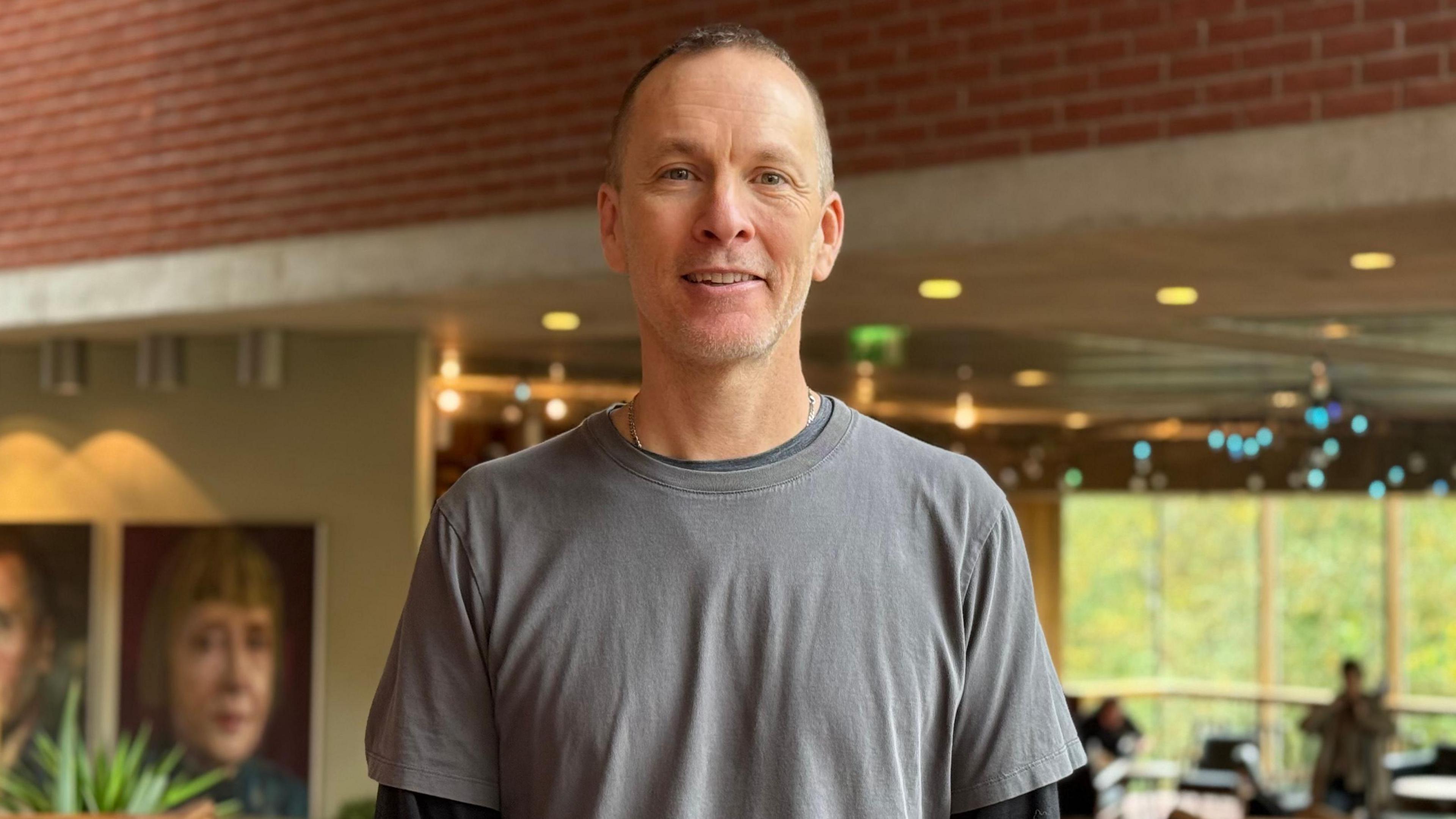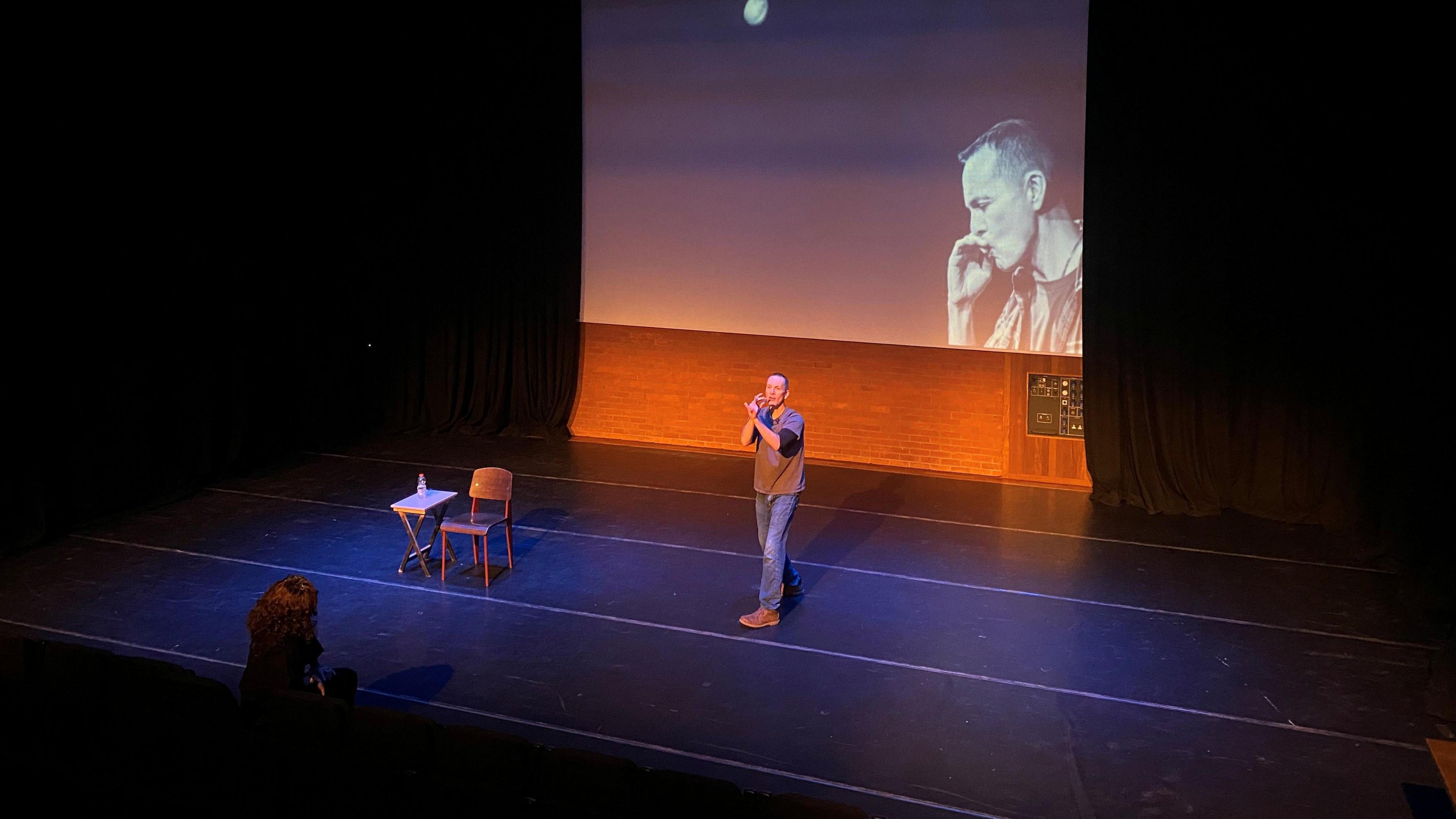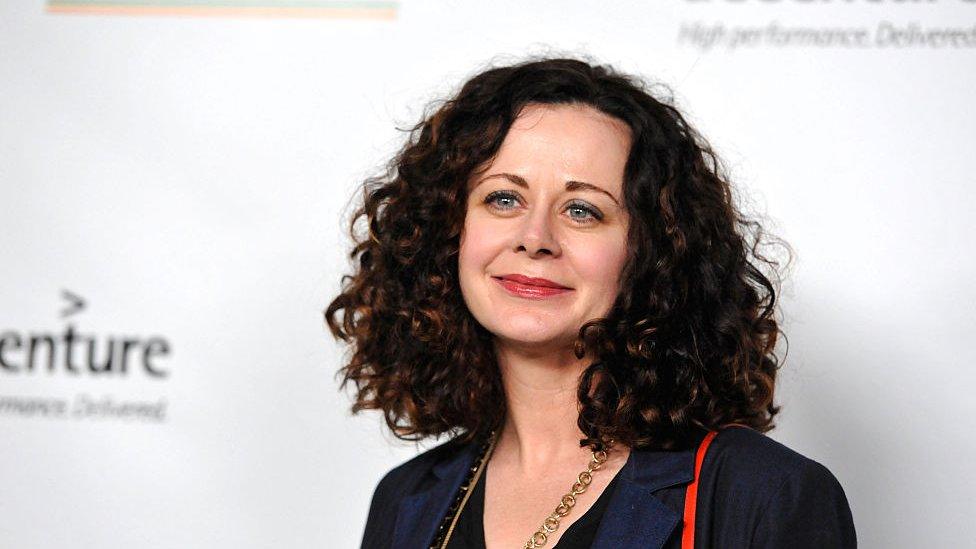Belfast actress returns home to direct 'incredible' play

Ms Hughes said she wants to bring "important stories" to Belfast
- Published
West Belfast actress Geraldine Hughes is back in Belfast, directing a critically-acclaimed play about abuse in the Catholic Church.
Unreconciled is an autobiographical play written and performed by Pennsylvania-born Jay Sefton.
The one-man show tells the story of a teenage actor cast as Jesus in a school play directed by a parish priest.
It also chronicles his journey to speak out as a survivor of sexual abuse and navigate a reparations programme set up by the Catholic Church.
Ms Hughes said she wants to bring "important stories" to Belfast - stories she is "proud to tell and be associated with".
She grew up in west Belfast in the 1970s and 1980s, before leaving for the USA to pursue an acting career.
"I'm really happy to be back at the Lyric Theatre," she told BBC News NI.
"Belfast is special. Belfast is the best city.
"I travel for work, I go to many different places, and Belfast is the greatest audiences, the most hospitable and welcoming and responsive audiences, and the Lyric team are fantastic.
"I love being here. It's a beautiful space."
Hollywood names
Ms Hughes' career has seen her act, write, direct and produce.
It has led her to work with big Hollywood names, including Sylvester Stallone, Clint Eastwood and Richard Gere, and she even nannied for Danny DeVito.
She said she has had "incredible opportunities to work with great people" and described Mr Sefton, who she has known since the late 1990s, as a "special performer and storyteller".
"It's just been such a beautiful lovely thing to be reconnected as friends and also to be working on this.
"It's an incredible story with - believe it or not - some chuckles and laughs and enjoyment."

Mr Sefton plays about 12 different characters in the play
Set in the Catholic suburbs of Philadelphia in the 1980s, Unreconciled originated from Mr Sefton's experience participating in a victims' compensation fund created by the Archdiocese of Philadelphia, and a newspaper article he wrote which connected him with other survivors and their stories.
He worked with co-writer Mark Basquill to bring his story to the stage, focusing on two key events: being cast as Jesus at age 13 and taking part in the compensation fund at age 47.
He was also inspired after seeing Ms Hughes' play Belfast Blues, a one-woman play based on her time as a pupil at St Louise's College.
"Seeing Geraldine's Belfast Blues was the inspiration for thinking maybe I could try something in the solo form," he said, adding that he plays about 12 different characters in Unreconciled.
Sharing stories

Rehearsals under way for the play before its opening night on Friday
Mr Sefton's hope is that audiences leave the play with "an understanding of how prevalent [sexual] abuse is".
"From a theatrical standpoint there's a lot of humour in the play, there's a lot of joy in the play and a lot of hope in the play so I hope people come away with a full experience of the theatre as well," he added.
"That's why I wrote it, why I thought theatre is the medium for this – we get to sit together in a room and hear somebody's story and hopefully we all feel a little more connected after that."
Ms Hughes added that she hopes people will "think about their own stories" and about "having the courage to tell their own stories".
"Also to have hope no matter what their circumstances are - to have hope and to continue to live a life well-lived no matter what they been through," she said.
"That's important."
Related topics
- Published5 April 2019
